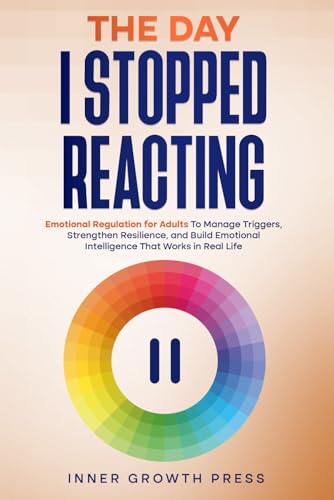Focusing on quality over quantity in relationships means prioritizing deep, genuine connections over superficial ones. By nurturing meaningful conversations, trust, and emotional support, you build stronger bonds that truly fulfill and support your well-being. Setting boundaries, letting go of draining commitments, and simplifying your social life creates space for authentic interactions. If you’re ready to discover how minimalism can transform your relationships and increase your emotional fulfillment, explore further.
Key Takeaways
- Prioritize deep, meaningful connections over numerous superficial ties to foster trust and emotional intimacy.
- Set boundaries to protect your energy and focus on relationships that genuinely support your well-being.
- Engage in mindful communication and genuine conversations to strengthen authentic bonds.
- Regularly evaluate and let go of social commitments that drain your time or emotional resources.
- Emphasize quality interactions that promote understanding, empathy, and lasting connection over sheer number of contacts.

The Five Keys to Mindful Communication: Using Deep Listening and Mindful Speech to Strengthen Relationships, Heal Conflicts, and Accomplish Your Goals
As an affiliate, we earn on qualifying purchases.
As an affiliate, we earn on qualifying purchases.
The Benefits of Prioritizing Depth in Connections

Have you ever wondered why some relationships feel more fulfilling than others? It’s often because those connections go beyond surface-level interactions like small talk or scrolling through social media.
When you prioritize depth, you’re investing in meaningful conversations and genuine understanding, which creates stronger bonds. Superficial ties may seem easy to maintain, but they rarely provide the emotional support you need. Developing emotional regulation skills can help manage the intense feelings that sometimes accompany deep connections, especially for individuals with BPD tendencies. Cultivating a mindset of abundance can also attract more fulfilling relationships by shifting focus from scarcity to appreciation.
By focusing on quality over quantity, you’ll find that your relationships become more satisfying and resilient. Deep connections foster trust, empathy, and true intimacy—things that fleeting online interactions can’t offer. Incorporating positive thinking strategies can further strengthen your ability to nurture these meaningful bonds and maintain a hopeful outlook on relationship growth. Practicing mindfulness techniques can also heighten your awareness of emotional nuances, enriching your understanding of your partner’s needs.
Additionally, engaging in dynamic communication exercises helps partners develop active listening and empathy, reinforcing the emotional foundation of the relationship.
When you cut back on shallow engagements, you free up time and energy to nurture those meaningful relationships that truly enrich your life.

The Day I Stopped Reacting: Emotional Regulation for Adults To Manage Triggers, Strengthen Resilience, and Build Emotional Intelligence That Works in Real Life (The Rising Empaths)
As an affiliate, we earn on qualifying purchases.
As an affiliate, we earn on qualifying purchases.
Recognizing Genuine Relationships Versus Superficial Ties

Recognizing genuine relationships from superficial ties requires paying close attention to the quality of your interactions. On social media, it’s easy to mistake likes and comments for real connection, but these often mask superficial ties. Genuine relationships involve meaningful conversations, trust, and consistent support, unlike casual acquaintances who may only surface during certain events or online interactions. Notice how you feel after engaging with someone—do you leave feeling energized and understood, or drained and indifferent? Authentic connections foster mutual growth and emotional safety, while superficial ones tend to be one-sided or fleeting. Additionally, the presence of consistent support and genuine concern can be key indicators of meaningful relationships. Understanding the contrast ratio in your interactions can help you differentiate between genuine engagement and superficial exchanges. Being aware of relationship quality metrics, such as depth and reciprocity, can further assist in evaluating the relationship quality and the true value of your connections. Recognizing these qualities can help you prioritize nurturing authentic bonds over superficial ones, leading to more fulfilling relationships.

Setting Healthy Boundaries: A Relationship Guide for Latter-day Saints and Other Faith-Based People
As an affiliate, we earn on qualifying purchases.
As an affiliate, we earn on qualifying purchases.
Strategies for Cultivating Meaningful Interactions

How can you foster interactions that truly matter? Start by setting clear emotional boundaries, so you protect your energy and maintain authenticity. When engaging with others, practice mindful communication—listen actively, speak honestly, and stay present. This demonstrates emotional self-awareness, which is vital for meaningful connections. Developing a growth mindset can help you approach these interactions with openness and resilience. Be intentional about your interactions, focusing on quality rather than quantity. Ask meaningful questions and share genuinely, avoiding superficial small talk. Recognizing when to pause or step back if conversations become draining or unfulfilling is essential, as it preserves your emotional well-being. Cultivating meaningful interactions requires awareness of your needs and boundaries. Understanding social dynamics can further enhance your ability to navigate relationships effectively. Incorporating filtration efficiency into your assessment of interactions helps you discern genuine connections from superficial ones. By prioritizing authentic exchanges and respecting emotional limits, you build trust and intimacy. Embracing the idea that creativity can be cultivated encourages a proactive approach to nurturing genuine relationships. Over time, these strategies create relationships that are enriching and resilient, emphasizing depth over superficiality.

The Couples Painting Game – Date Night Card & Painting Kit | Fun DIY Activity with Prompts, Challenges & Questions for Deeper Connection, Meaningful Games for Adults and Teens, 2 Players
🎨 Creative Connection for Two – Turn date night into an interactive art experience with fun 2-minute painting…
As an affiliate, we earn on qualifying purchases.
As an affiliate, we earn on qualifying purchases.
Letting Go of Unnecessary Social Commitments

Why hold onto social commitments that no longer serve your well-being? Your social calendar can quickly become cluttered with events that drain your energy or cause stress. Engaging in music therapy or other calming activities can help you better understand your emotional needs and prioritize accordingly. Additionally, considering electric bike options can provide a sustainable and enjoyable way to incorporate physical activity into your routine, aligning with your desire for healthier, more intentional living. Recognizing the importance of cost behavior analysis can further assist in understanding how your time and energy are allocated across various commitments.
By letting go of unnecessary commitments, you free up time and mental space for what truly matters. Recognize which activities add value to your life and which ones feel obligatory or unfulfilling. Incorporating intentional planning can help you prioritize and align your commitments with your core values.
Saying no to certain invitations allows you to prioritize quality interactions over quantity. It also helps you manage busy schedules more effectively, reducing overwhelm and creating room for meaningful connections.
Maintaining Balance and Emotional Well-Being Through Minimalism

Simplifying your social commitments can substantially reduce stress and free up mental space, making it easier to focus on your emotional health. By setting clear social boundaries, you protect your emotional resilience, preventing burnout and fostering a sense of control. Engaging in mindful decision-making about your relationships allows you to better evaluate which connections truly contribute to your well-being. Minimalism encourages you to prioritize relationships that truly matter, reducing overwhelm and promoting genuine connections. Maintaining balance involves regularly reassessing your commitments and being honest about what drains or energizes you. This approach helps you stay grounded and emotionally stable, even during challenging times. When you focus on quality interactions rather than quantity, you strengthen your resilience and create a supportive environment for your well-being. Ultimately, minimalism in relationships empowers you to nurture your mental health and build fulfilling connections.
Frequently Asked Questions
How Can Minimalism Improve Long-Term Relationship Satisfaction?
Focusing on quality over quantity can boost your long-term relationship satisfaction by fostering intentional intimacy and meaningful communication.
When you prioritize meaningful moments, you create deeper connections that withstand challenges. Being intentional helps you understand each other’s needs better, encouraging honest conversations and emotional closeness.
This approach reduces superficial interactions and builds a solid foundation, making your relationship more resilient and fulfilling over time.
What Are Signs of a Superficial Relationship?
You might notice signs of a superficial relationship when superficial communication dominates, and deep conversations are rare.
Shallow commitments often replace genuine emotional investment, making the connection feel fragile.
While some believe appearances suffice, research shows lasting bonds require authenticity and vulnerability.
If you often feel disconnected or that your partner isn’t truly present, it’s likely a sign you’re in a superficial relationship lacking meaningful depth.
How to Handle Social Pressure to Expand Your Social Circle?
When facing social pressure to expand your social circle, remember that peer pressure and social media often push you to do more.
Instead, focus on building meaningful connections that align with your values. Politely decline invites if they don’t serve you and resist the urge to compare yourself to others online.
Prioritize quality over quantity, and surround yourself with people who genuinely support and respect your choices.
Can Minimalism Help Overcome Loneliness?
Imagine feeling lonely despite many acquaintances; minimalism in relationships can help.
By focusing on a few meaningful connections, you foster deeper emotional intimacy and genuine social connection. You prioritize quality over quantity, reducing superficial interactions that drain energy.
This approach allows you to build trust and understanding, making your relationships more fulfilling. Minimalism helps you break free from loneliness by nurturing authentic bonds that truly satisfy your emotional needs.
How Does Minimalism Influence Emotional Resilience?
You might wonder how minimalism influences emotional resilience.
By setting clear emotional boundaries, you protect yourself from overwhelm and burnout. Sharing vulnerability becomes more meaningful when you focus on deeper connections rather than numerous superficial ones.
Minimalism encourages you to prioritize quality interactions, helping you build strength and adaptability.
As a result, you become more resilient emotionally, better equipped to handle challenges and maintain stability in your relationships.
Conclusion
By embracing minimalism in your relationships, you’re planting seeds for a garden rich with genuine connections. Let go of the weeds—superficial ties—that drain your energy, and nurture the roots of meaningful interactions. As you prune away excess, you’ll find your emotional landscape blossoming with trust and understanding. Remember, less is more; in the quiet space of intentional relationships, you’ll discover a harmony that nourishes your soul and brings true fulfillment.









